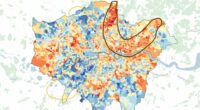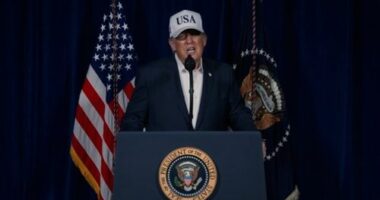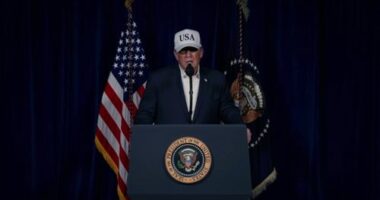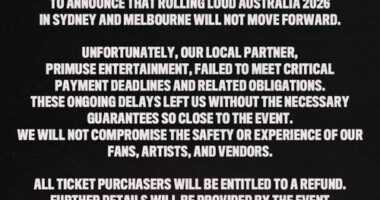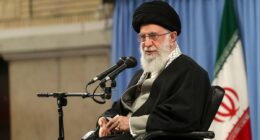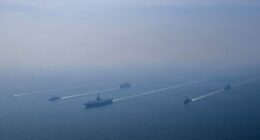Share this @internewscast.com
“Not too long from now, I hope that we are able to look back at this historic moment and see it as a turning point for addressing Islamophobia and turning words into meaningful action.”
What did the report find?
It found that Muslim women — who can carry visual markers of the Islamic faith in the form of the hijab — comprised the majority of targets of reported incidents of everyday Islamophobia.
“The attack[s] which followed have arguably been driven by anti-Palestinian hate and racism … [which] makes people view all Muslims and terrorists,” he said.
“This has resulted in them being perceived more negatively than members of any other religious group for an extended period.”
Fifty-four recommendations
“Education and awareness: challenge Islamophobia, promote understanding and respectful dialogue through training, media, the arts and education.”
What specific recommendations did the report put forward?
Malik also called for the review of counter-terrorism laws and their application, including the creation of a Muslim advisory panel to provide insights into the impact of the laws on the community.
The report recommended extra funding to enhance the safety and security of Muslim institutions, including schools, community centres and mosques.
“This prejudice undermines the core value of mutual respect, fairness and compassion. It also disproportionately disenfranchises Australian Muslims, who are not asking for special treatment, but equal recognition of harm.”
Albanese to ‘carefully consider’ recommendations
Multicultural Affairs Minister Anne Aly said the report would “give voice to Muslims across Australia who have long endured discrimination, racism, and at times, some pretty abhorrent acts of outright hatred”.
She specifically called for more community initiatives that are women-led to combat the disproportionately gendered nature of Islamophobic attacks.
